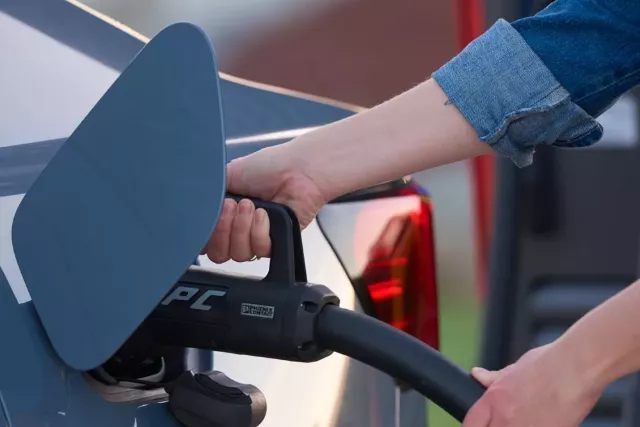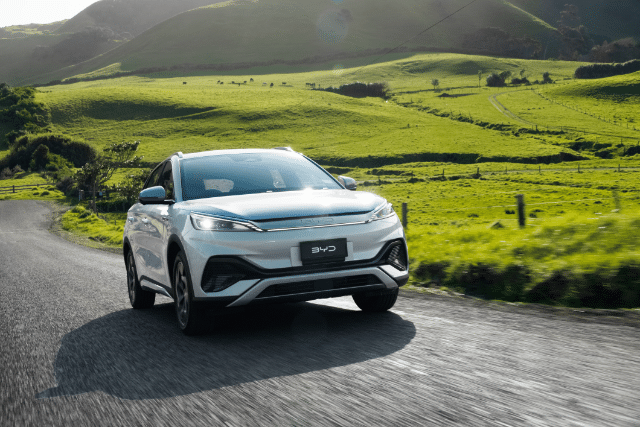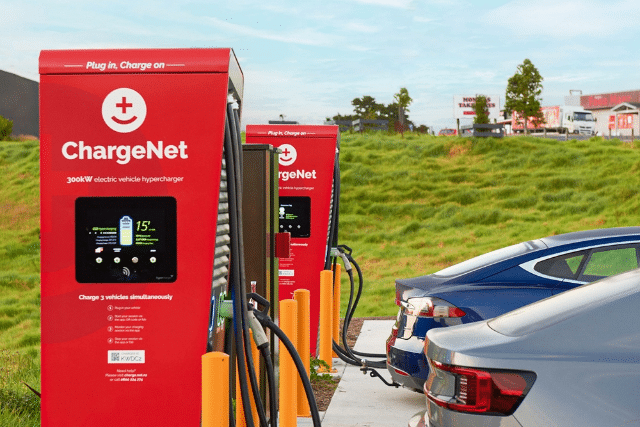Range anxiety – the fear of having your electric vehicle lurch to a stop in the middle of nowhere – is a real thing.
It’s cited as the most common argument against owning a pure electric vehicle. It also has implications for motorists going abroad, who don’t have confidence in being able to plug into a roadside charger on their chosen route when travelling on foreign roads.
The subject sparked my interest when I was offered one of GO Rentals’ latest additions to its rental fleet, a BYD Atto 3.
Golf plan
The plan was to test the charging grid during a three-day 1,200-kilometre road trip from Christchurch, along the West Coast, through Central Otago, up into the Mackenzie Country, and back to the garden city.
Bookending that trip was to golf at Terrace Downs course in the Selwyn District with a mate visiting from Durban, and a stop at the famous Fairlie Bakehouse, sampling Franz Lieber’s famed pork pies or even one of his salmon gourmet creations. I hadn’t decided.
Sadly, appalling weather and the closure of Terrace Downs that winter weekend disrupted my plans.
We did manage 18 holes at the always-superb Pegasus course in North Canterbury, and a drive out to Sumner, Taylors Mistake, and then to Akaroa the following day.
That was still well within the 420km range of the BYD GO Rentals had provided for me at Christchurch Airport.
BusinessDesk has extolled the virtues of the BYD, so GO was quite happy for me to take its first – and virtually new – South Island EV onto the challenging local roads.
The golf wasn’t worth writing about, as I’m best classed as a fair-weather player, but my mate Richard wanted to warm up for a company tournament he was playing in at Clearwater in Christchurch the next day.
Sales growth
The car was a delight. Responsive, comfortable, full of bells and whistles, and, importantly, big enough for two golf bags.
It’s not surprising, then, that it’s pushed its way into either the number two or three spots in monthly EV sales in NZ, just after the Tesla Y – albeit the BYD is about $12,000 cheaper.
The Chinese-made BYD (the initials stand for “Build Your Dreams”) comes with a sticker price of $56,990 – less the $7,015 clean-car rebate for the 50kWh unit, which is good for 345km per charge. The version GO Rentals lent me was the 60kWh option, which is $3,000 dearer but gets you an additional 75km.
Hotel chargers
That meant I didn’t actually need to recharge the car, although if I had, the hotel we stayed at – Christchurch’s Crowne Plaza – didn’t have a charger on site anyway.
Using the booking.com filter on the 176 hotels in and around Christchurch, I learned that only 19 provided EV chargers. Of the 1,800 properties in the South Island listed on booking.com, only 96 have them on site.
The Crowne Plaza front desk referred us to the nearby Botanic Gardens parking lot, where there are two slower AC, 22kW units. Those ChargeNet units will cost you about 40c per kilowatt hour to charge.
So, from flat to full, that would take about three hours – or in the case of the Atto, about 140km of range for every hour.
On Banks Peninsula, I also found two chargers at the Little River train station – which is good for a quick top-up if required, but it’s 27km away from Akaroa.
Playing catch-up
NZ is filling up with EVs, much of the growth driven by government feebates and incentives. Last month, pure battery-powered vehicles accounted for almost a fifth of all new private vehicle sales.
At last count, there were 57,370 EV passenger cars on NZ roads. Adding the 24,000 or so plug-in hybrids takes the number of EVs to about 1.7% of the country’s total vehicle fleet of 4.8 million cars.
Big savings
Five years ago, there were fewer than 5,000 battery-powered cars, according to the transport ministry.
About 80% of the people who own EVs charge them at home, which can take about eight hours per charge. That comes in at the equivalent of about 40c per litre to get a full charge. So, at a current price of about $2.75 for unleaded 91-octane fuel, that’s a saving of about $90 per 40-litre tank per fill.
For visiting motorists, ChargeNet, NZ’s biggest roadside charging network operator, has just surpassed 300 charge points, which geographically means one charger every 75km. Waka Kotahi NZ Transport counts 387 public chargers on NZ roads – of which 138 are in the South Island.
The government’s long-term EV charging plan is to have charging hubs every 150-200km on main highways, with a public charger for every 20 EVs in cities and at a ratio of one for every 2,000 people in smaller towns.
Level pegging
ChargeNet chief operating officer Martin Miles said we are some way off that. ChargeNet has taken seven years to get to where it is and the company – 20% held by Singapore’s Mercuria Holdings – thinks the country will need to invest $400 million to get the charging grid to level pegging with the rapid rise in EVs over the next five years alone.
Hotel groups, meanwhile, have a mixed record in climbing onto the EV charging bandwagon.
Australian hospitality group EVT, one of the most proactive, has chargers at all of its QT, Rydges and Atura properties in NZ. It says the units are in regular use.
Sudima has two chargers each at its Auckland Airport, Christchurch Airport, Rotorua and Kaikoura properties, but says it doesn’t have installation space at its newer Queenstown or Auckland city sites.
Absorbing guests’ costs
Sudima’s executive director of sustainability and environment, Kanika Jhunjhnuwala, said she doesn’t know anyone who bases their decision to stay with a hotel on the availability of EV chargers. The group, though, absorbs the electricity costs for its guests.
Accor has recently installed three Tesla supercharge stations at its Novotel New Plymouth property and said it’s working on EV solutions at its other 44 NZ hotels.
ChargeNet’s Miles accepts it can be a challenging issue for hotels and other short-term providers.
“Customers have different needs. It’s okay to install one slow-charge which may take eight hours, but what do you do for the other customer who turns up in the EV? This is where it comes down the charging ecosystem where we play a part in the rapid-charge space.”
Maps of charging sites
Miles said the ChargeNet installations tried to match the charge rate with the amount of time people would be there.
“People spend about 40 minutes at a supermarket, for example, so putting an AC charger [slow charger] there would only give them about 30km of range – that’s not what you want.”
ChargeNet, the Energy Efficiency and Conservation Authority, and Waka Kotahi NZ Transport all publish charging maps.
Other, proactive tourism agencies such as Venture Southland have gone as far as to establish the “southern scenic route” by EV, an EV-friendly five-day itinerary starting in Dunedin and incorporating the Catlins, Invercargill, Te Anau, Milford Sound, and Queenstown.
And, importantly for me, there is a roadside charger in Fairlie.
View the full article: https://businessdesk.co.nz/article/cars/anxiety-over-taking-long-ev-trips-becoming-a-thing-of-the-past
About GO Rentals:
GO Rentals is a Kiwi-owned and operated car rental company. As trusted local experts with 24 years of experience in the travel industry, their focus on technology, innovation, and visitor experience has seen them grow from a small family-owned business to a multi-award winning national brand.
GO Rentals currently has nine branches nationwide, Including Auckland (City and Airport), Waiheke, Wellington, Nelson, Christchurch, Queenstown, Dunedin, and Invercargill.
Kiwi consumers acknowledged GO Rentals as New Zealand’s favourite car rental provider in 2023. GO Rentals was the clear winner of Canstar Blue’s award for Most Satisfied Customers being the only company to earn a top 5-Star award for Overall Satisfaction.




